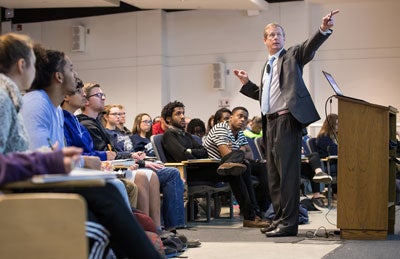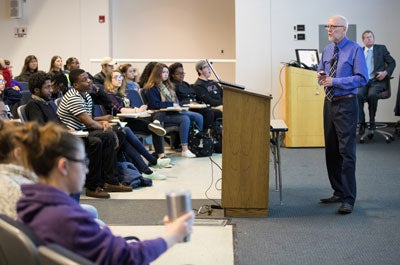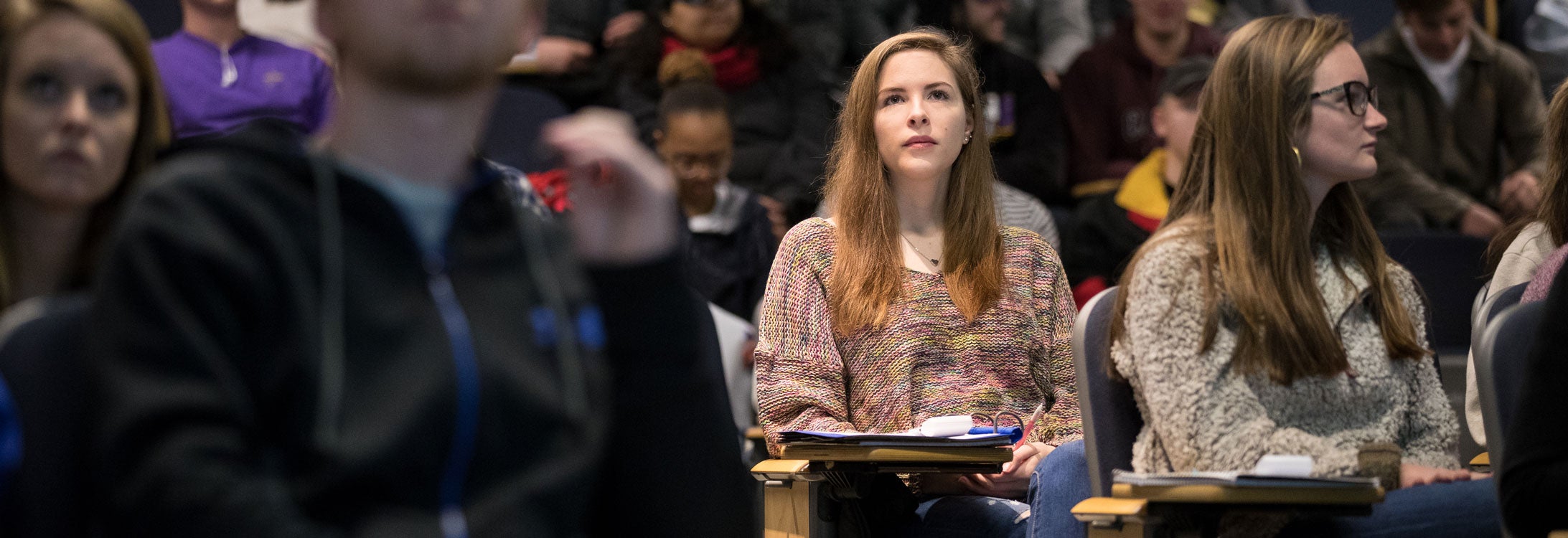DOLLARS AND SENSE
ECU’s personal finance class teaches students practical money skills

College of Business teaching instructor Mark Weitzel engages students in the personal finance class by doing his best to make the class fun and memorable.
Mark Weitzel has been teaching East Carolina University students how to manage their personal finances for almost 20 years.
For more than a decade, he has partnered with fellow College of Business teaching instructor Len Rhodes in leading the personal finance class, which attracts 500 students per semester.
“The class is so popular, I think, because of word of mouth from student to student. They seem to think there’s real value in the class,” said Rhodes, who also serves as director of technology information and operations in the college.
The twice-a-week class is fast paced and entertaining – which Weitzel and Rhodes say is key for the students’ success. It also includes aspects of personal finance the pair wishes they had been taught when they were students years ago.
“If we can make it easily rememberable, if we can make it engaging, if it has a very sticky message to it, then the likelihood that it will be retained is greater,” Rhodes said. “The things that they’re learning in class, they can implement in their lives immediately – as soon as they walk out of the classroom.”

Len Rhodes co-teaches the personal finance class with Mark Weitzel. They have been teaching together for about a decade.
Each semester, Rhodes and Weitzel challenge the class to save $100,000 collectively by utilizing the tips they teach.
“To me, the gratification is when we go back in and tally that up. For the 10 years we’ve been doing this [challenge], every semester they have exceeded that $100,000 goal. They’ve saved anywhere from a low of $118,000 to a high of about $132,000,” Weitzel said. “That to me is the impact that they’re understanding the way they’re currently living their lives is actually costing them money.”
One of those students, Mackenzie Dolecheck, was spending cash by dining out several times a week. Pizza was her kryptonite. So she decided to start going to the dining hall more and using her Pirate Bucks – money she had already spent.
“You go to class, you learn something new and then you apply it to your life. You want to go try out the tips and tricks that they teach you in class,” Dolecheck said. “I’m saving money by going to the dining hall, so maybe I can save up for something bigger in the future.”
Just by eating in the dining hall more often, she saved an estimated $80 per month. By the end of the semester, she had saved $320, which she placed in an emergency fund.
“It’s definitely really rewarding to see how saving money affects your wallet,” Dolecheck said.
Her class saved $122,820 last semester.
“I think the most important thing is we want the students to realize that they are capable of achieving personal financial success and that it is not that hard. If they can simply walk out of the classroom with that message, then I think we’ve accomplished our goal,” Weitzel said.
